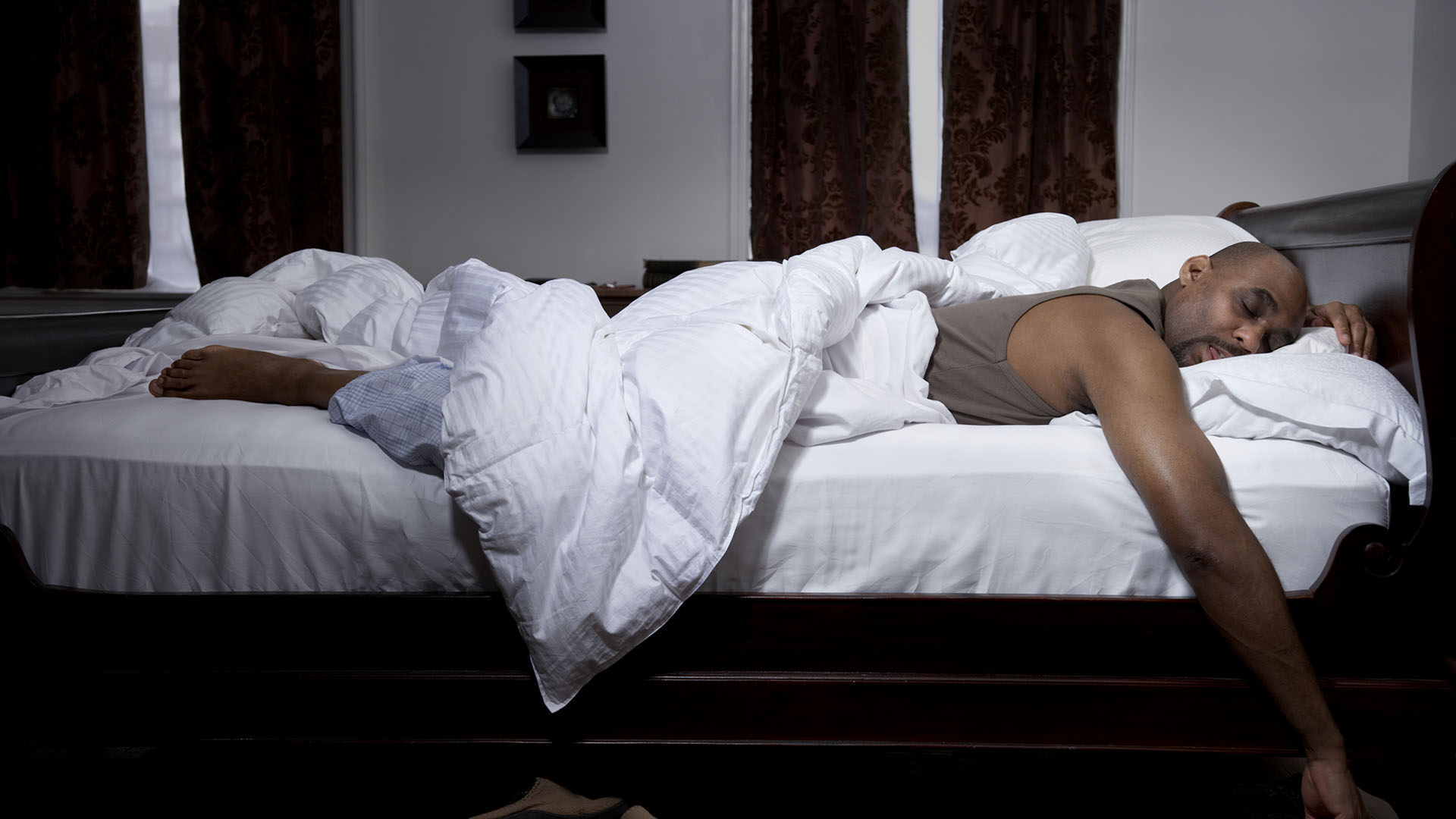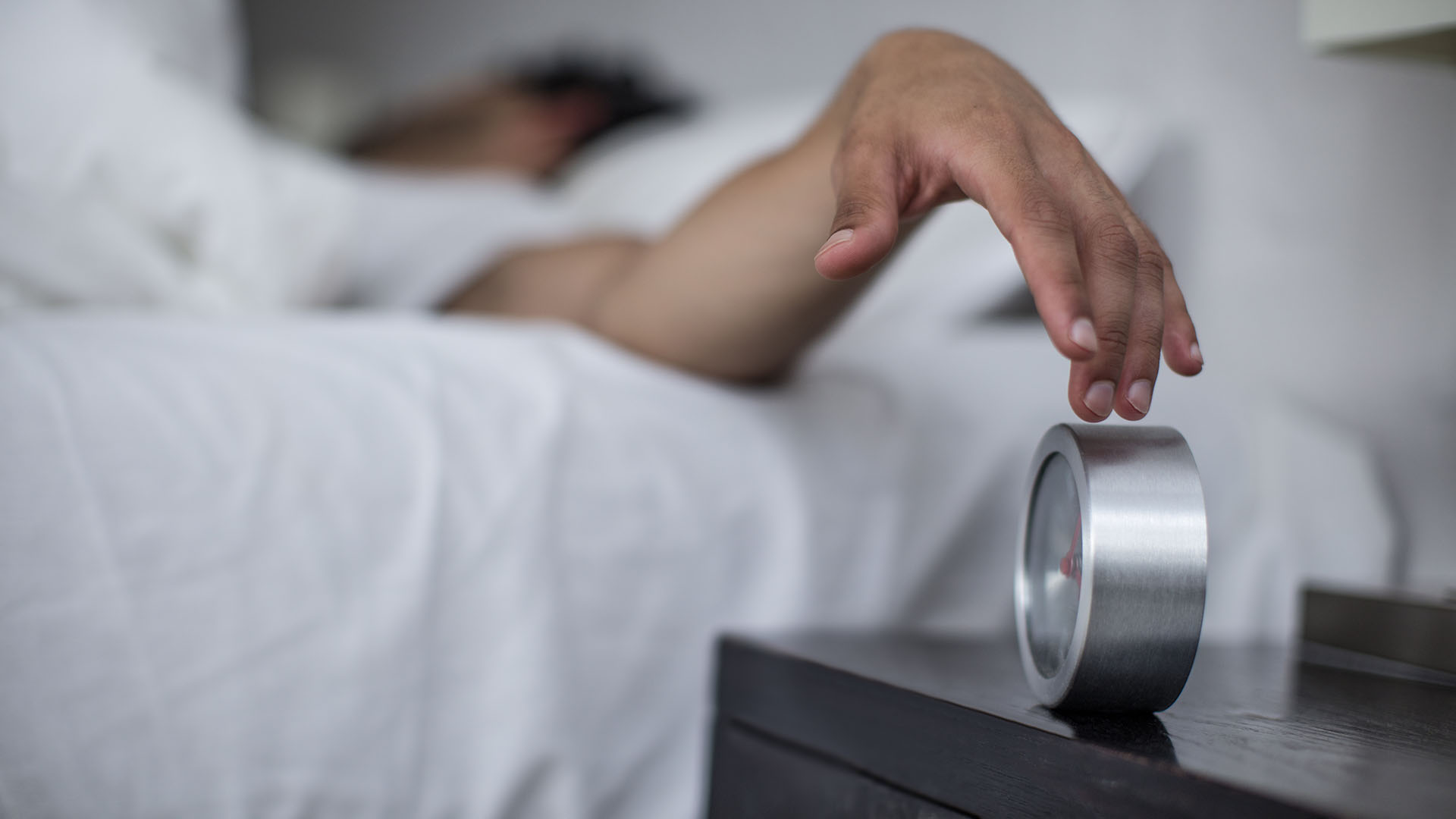You actually can ‘bank’ your sleep for a later date – an expert explains how
How 'sleep banking' can build your sleep savings account

'Sleep banking' is the process of sleeping more in the days leading up to a period where you know you'll be sleeping less. By accumulating this excess rest, you can (partly) counteract the effects of sleep debt, helping you feel better and more alert even after a bad night. Although this isn't a quick-fix for consistently bad sleep, it can be a method to cope better with expected sleep loss, such as after a clock change or when traveling to a different time zone.
For sleep banking to be effective, you need to be able to get good, extended sleep when you need it. To do this, it's essential to have a sleep setup that supports your needs. Our best mattress and best pillow guides can help you optimize your bedroom for rest, so you can grab those extra few hours. Want to give sleep banking a go? We asked an expert how it works, and how you can get started saving your sleep for a rainy day.
What is sleep banking?
Sleep banking is a method that involves accumulating extra sleep before a period of less sleep. This 'banked' rest can then counterbalance the sleep you've lost, helping you feel more alert and awake, despite your disrupted night. "Think of it as having a sleep savings account,” says Dr Jake Deutsch, board certified emergency physician and medical advisory board member for Oura.

The term ‘sleep banking’ was coined by a research team from the Walter Reed National Military Medical Center, after conducting a study to see whether excess sleep could improve performance and alertness during a later period of reduced sleep.
The researchers found that participants who had excess sleep were more alert and awake after several nights of bad sleep than those who had maintained their initial sleep habits prior to the disruption. In addition, those who had banked sleep recovered quicker than those who had continued with their normal sleep habits, even when reverting to their usual sleeping routine.
These results have been supported by further research. A 2015 study observed that extended sleep could “improve sustained attention and reduce sleep pressure”, while a 2020 review found that banking sleep ahead of a mission improved performance and reaction time in military personnel.
How does sleep banking work?
Acquiring extra rest during sleep banking provides a reserve to draw from when you miss out on sleep at a later date. It offers something like protection against the effects of sleep deficiency. Instead of feeling groggy and easily distracted after a bad night, this banked rest helps you fight sleep debt to get through the day easier and bounce back faster.

Sleep debt is the cumulative effect of frequently missing out on the amount of rest your body needs. For example, if you go to bed 20 minutes late every night for one week, you’ll have built up 140 minutes of sleep debt. As well as disrupting your sleep cycle and circadian rhythms, sleep debt can cause a decline in both your mental and physical performance. Both sleep debt and sleep banking rely on a cumulative effect – just in the opposite direction.
When to use sleep banking
Sleep debt can occur for a lot of reasons – a busy week, your neighbor's new baby, a few late nights with friends – but it can also be the result of time changes confusing your body clock. And this is where sleep banking comes in. “Banking sleep is the best way to counteract interruptions of our circadian rhythms, such as jet lag or daylight saving,” explains Dr Deutsch.
Sign up for breaking news, reviews, opinion, top tech deals, and more.
By gradually accumulating sleep in the run up to the clock jump or traveling to a new time zone, you can offset the sleep you lose as your circadian rhythms struggle to adjust to the change. Sleep banking can be an important tool in preparing for Daylight Saving Time sleep loss.

And when it comes to travel, Dr Deutsch believes storing sleep should be as important as packing your suitcase. "Having a plan to deal with jet lag, especially for long-haul journeys, is critical. I would prepare for this no different from having travel vaccinations or medications on hand for altitude sickness."
While sleep banking can be used for other periods of lost sleep, it needs to be done in advance of a bad night – and these are harder to predict than annual clock changes. But if you know you have that a big night out, a few days of overtime, or anything that might disrupt your slumber, consider banking some sleep.
“Having a reserve of sleep is what I consider an advanced technique when it comes to health optimization," says Dr Deutsch. But it's one we can all make use of, with some careful planning.
How to use sleep banking effectively
Sleep banking can be used as an effective way to prepare for losing sleep, but there's a few guidelines to keep in mind. Primarily, you have to remember sleep banking might be similar to a savings account, but it's not an exact comparison. And sleep banking can't be a cure-all for a lack of good sleep habits.
1. Take it slowly
A sleep bank isn’t like a real bank: you can’t deposit a large amount in one go and draw from it as you please. Getting 14 hours on Monday doesn’t mean you can get away with six hours of sleep the rest of the week and not feel any effects. It’s also important to avoid regularly oversleeping, which can have a damaging effect on your physical and mental health.
Instead, slowly add to your reserve in the days leading up to your expected sleep disruption. Building 15 to 20 minutes extra sleep each night can help you prepare for an event like the clock change, but if you're expecting a bigger disruption, try banking more hours – the original sleep banking study added an extra three hours of sleep each night.
2. Track your sleep
Dr Deutsch recommends taking charge of sleep banking by using one of the best sleep trackers to keep an eye on the exact amount you're storing. “Using data takes out any guesswork, and wearables like Oura Ring make it simple and easy to track sleep metrics.”

If you don’t have a wearable sleep tracker, you can use a sleep tracker app to get a rough idea of how well you’re sleeping each night. While these apps might not have the accuracy of a wearable, they’re typically cheaper, and as you don’t have to sleep with them on, can be more comfortable.
Alternatively, use a sleep diary to note when you went to sleep, when you woke up, and how you felt during the night. Sleep diaries do rely on your own reporting, so it can be hard to get accurate data regarding how deeply you slept, but they do provide a general overview.
3. Take naps
Sleep banking doesn't have to be done at night to be effective. Napping can be good for your sleep and a way to build up rest before a period of sleep disruption. Aim to keep your naps under 30 minutes and set an alarm to stop yourself from oversleeping. Avoid napping late in the afternoon, as this can make it harder drift off at night.
If you regularly feel like you're missing out on sleep, naps can be part of your daily routine – they're less disruptive when your body knows to expect them. However, if you're planning on sleep banking in addition to napping, make sure you factor your daytime kip into your data.
4. Bank your sleep within one week of disruption
Sleep banking doesn’t keep sleep stored indefinitely – you can’t just produce your PIN code and access that extra hour of sleep you got two months ago. We recommend following in the footsteps of the initial study, and banking your sleep within one week of the disruptive event.
And while sleep banking can limit the effects of lost sleep, don't expect to feel as fresh as you do after a full eight hours. However, sleep banking can help you get back to your best self quicker, if you return to your regular sleep pattern soon after.
5. Have an effective bedtime routine
Crucial to sleep banking is being able to get those extra hours of sleep, which means you need a good bedtime routine. A sleep-friendly evening routine helps you wind-down and relax, making it easier to drift off and stay slumbering.
A good nightly routine should be calming, so structure it around activities that you find relaxing. Reading, journaling, and light yoga are popular choices, but this is a personal decision – consider what makes you feel relaxed. And avoid anything stressful, especially work.

Put down screens that use blue light in the hour before bed, as this can disrupt your circadian rhythm. In general, try to keep lights low in the evening, to signal to your body that it’s time for sleep.
Think about what you’re eating and drinking before bed. Don’t drink caffeine in the afternoon, as it can take a while for the effects to wear off. And avoid eating big meals late at night. Eating sends your body into ‘digestion mode’ not ‘sleep mode’, and lying down after eating can lead to indigestion.
If you’re looking to create a bedtime routine ahead of sleep banking, try using the 10-3-2-1-0 sleep rule. This method encompasses everything from morning to night, helping you structure your day with the purpose of achieving better sleep.

Ruth is TechRadar’s Sleep Writer. She’s here to help you find the perfect sleep setup for your budget and personal preferences. As well as keeping a keen eye on everything that’s going on in the world of mattresses, she regularly speaks to experts to help you learn how to improve your sleep habits, whether that’s by debunking sleep myths or explaining the science behind it all. Prior to joining the TechRadar team, she wrote features and product guides for new parents hoping to get a decent night's sleep, as well as writing for a variety of online spaces.